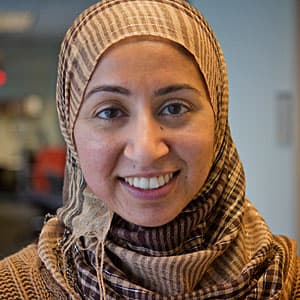Advertisement
Should Young Murder Suspects Be Tried As Adults?
ResumeWhen Philip Chism, the 14-year-old Danvers High School student accused of murdering his math teacher, returns to court later this month, he'll be treated as an adult.
But that wasn't always the law. Until 1996, 14-year-old murder suspects were handled in juvenile court with rare exception.
"Kids could only be transferred from juvenile to adult court if a judge found them to be both dangerous and not amenable to rehabilitation," said Joshua Dohan, who directs the youth division of the state's public defender agency.
Dohan, who has represented juveniles since the late 1980s, feels it's possible to rehabilitate most kids, even those who commit murder.
"There are several people that I represented back in the early '90s that are out, you know, and doing pretty well," Dohan explained.
'Adult Time For Adult Crime'
In the 1990s, the mood across the country shifted.
"Nationwide, youth crime had been going up very precipitously. People were suddenly very fearful and they thought this trend was going to continue," said Naoka Carey, who heads an advocacy group called Citizens for Juvenile Justice.
"There was this term coined called the 'Super Predator,' " she explained. "There was this idea that kids were somehow different and they were going to commit more crimes and we needed to respond differently."
Then, in 1995, a 15-year-old former altar boy from Somerville was accused of murdering a friend's mother by stabbing her dozens of times.
"The Eddie O'Brien case, I think a lot of people feel that that was the moment when we decided we were going to require that these cases for 14 years of age and up would be in adult court," Carey said.
The following year a new law was put on the books in Massachusetts. It spelled out that anyone 14 and older accused of murder would be tried as an adult. No discretion from prosecutors or the judge. The mantra was "adult time for adult crime."
That meant kids who couldn't drive, drink or vote could still face an adult punishment. For murder, it's life without parole. Carey says that's extreme.
"We designed a system where for all practical purposes you are pretending that there is no child in front of you," Carey said. "And you are really not observing the reality in front of you, which is that here is a young person. It is different to be a 15- or 16-year-old than a 30-year-old."
'Kids Are Different'
Research in the years since the law went into effect shows that teenagers' brains are not as developed as those of adults.
"Kids are different. They're more impulsive. There's more risk taking. They don't delay like adults, they don't stop and think, literally," said Thomas Grisso, a professor of psychiatry at UMass Medical School and a leading researcher on adolescent development.
Grisso says there are two unique things happening in the brain at the same time that make teens more susceptible to recklessness. First, there's a surge of activity in the emotional area of the brain.
"At the same time, the frontal lobe, the one that's going to delay you and stop and think hasn't quite developed to an adult capacity," Grisso explained. "And it creates a danger zone, a high-risk area."
But even with this research the law fell under the radar.
Then last summer, the U.S. Supreme Court ruled that mandatory sentences of life without parole for teens was unconstitutional. That decision poses a problem for Massachusetts, where automatic guidelines call for life without parole.
The state's Supreme Judicial Court is now reviewing a number of teen murder cases.
It's unclear what Massachusetts is going to do in order to comply with federal law. Whatever the state decides, Michael O'Keefe, president of the Massachusetts District Attorneys Association and district attorney for the Cape and Islands, doesn't want to lose the ability to charge kids as adults for murder.
"We have to have a system where juveniles, even young juveniles, who commit very sophisticated murders are not beyond the reach of the law," O'Keefe said. He wants to have the flexibility to try kids even younger than 14 for murder as adults.
"For example, I've had two 13-year-olds commit a very sophisticated murder that they set up, planned and executed," O'Keefe explained. "There are some people who despite their tender age commit very gruesome, serious crimes, and they should be held accountable for that."
Whether they should all be held accountable using the same formula is controversial. Should a 14-year-old accused of murdering his teacher be tried as an adult, without question? For now, that's the law in Massachusetts.
This program aired on November 5, 2013.
